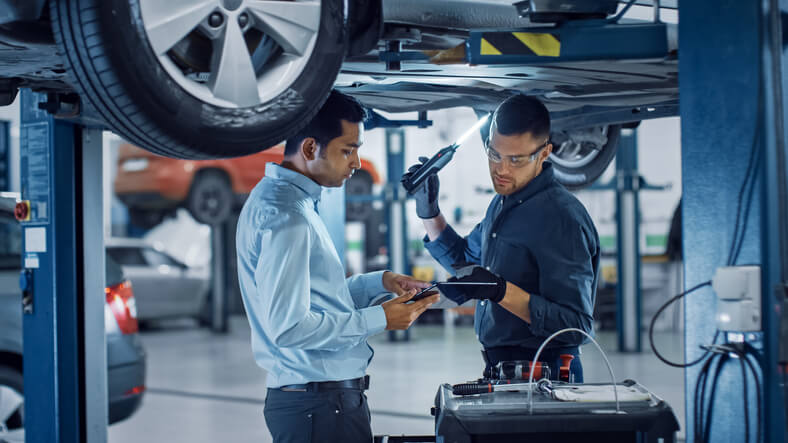Electric Vehicle Trends to Watch in 2024 as a Student in Hybrid and Electrical Mechanic Training
Once a niche market, the EV sector is now burgeoning into a mainstream force, driven by global efforts to reduce carbon emissions and the collective shift towards renewable energy sources. This year marks a significant turning point in the journey of electric vehicles. Key trends shaping the industry are influencing consumer choices and dramatically altering the skills and knowledge required by automotive professionals. Understanding these trends is crucial for aspiring mechanics and technicians specializing in hybrid and electric vehicles. They represent the undercurrents that will dictate future market dynamics, technological needs, and environmental strategies.
Technological Innovations and Market Expansion
One of the most noteworthy trends in the EV industry is the significant improvement in battery technology. This advancement addresses the longstanding issue of range anxiety, a common concern among potential EV buyers worried about running out of power before reaching a charging station. 2024 is anticipated to witness more technological strides, enabling EVs to achieve substantially longer ranges. Many models are expected to surpass the 500 kilometers mark on a single charge, making them increasingly viable for long-distance travel.
Complementing the advancements in battery technology is the diversification of the EV market. Car manufacturers are expanding their electric vehicle lineups, introducing various models, including electric SUVs, crossovers, and even pickup trucks. This expansion caters to a broader range of consumer preferences and needs, making electric vehicles an attractive option for a broader demographic.

Another critical area of development is the charging infrastructure. The focus is on enhancing the speed and availability of charging stations, mirroring the convenience of traditional gas stations. The expansion of fast-charging stations, especially along highways and urban settings, is expected to reduce charging times and drastically alleviate range anxiety.
Sustainability remains a core principle in the EV industry. We anticipate a continued emphasis on utilizing sustainable materials in vehicle production. This commitment to environmental stewardship is expected to drive the use of recycled and eco-friendly materials, thereby reducing the overall carbon footprint of EVs. This trend reflects the environmental consciousness at the heart of the industry. It highlights the evolving skill sets required in hybrid and electrical mechanic training. where understanding and implementing sustainable practices becomes increasingly crucial.
Market Dynamics and Consumer Trends to Keep In Mind After Hybrid and Electrical Mechanic Training
The increasing availability of EV models with longer ranges and the rising cost of traditional fuels are expected to contribute to a surge in new EV ownership. As charging technology becomes more accessible and high-range vehicles enter the market, consumers will likely turn to electric vehicles as a viable alternative to gas and diesel-powered cars.
The affordability of EVs is also set to improve. As charging technologies improve and manufacturing processes become more efficient, the price gap between EVs and combustion engine vehicles is expected to narrow. By 2025, the total cost of owning an EV will likely fall below that of traditional vehicles, making them an even more attractive option for consumers. This shift also emphasizes the role of a hybrid and electrical mechanic in supporting the maintenance and optimization of these increasingly affordable EVs.

Vehicle-to-grid (V2G) technology is another area poised for growth. This technology allows EV owners to feed excess energy back into the power grid, potentially earning passive income while helping to supplement the energy supply during high demand. The implementation of V2G technology is expected to increase significantly, offering benefits to vehicle owners, energy providers, and the community.
Lastly, the EV charging sharing economy is an emerging trend. With the increase in private EV charging stations, owners are beginning to share their chargers with the public, creating a community-driven approach to support the growing number of electric vehicles. This sharing economy concept helps accommodate the rising EV numbers and fosters a collaborative effort toward sustainable transportation.
Are you interested in our auto mechanic school?
Contact ATC Surrey to learn how you can get started.


